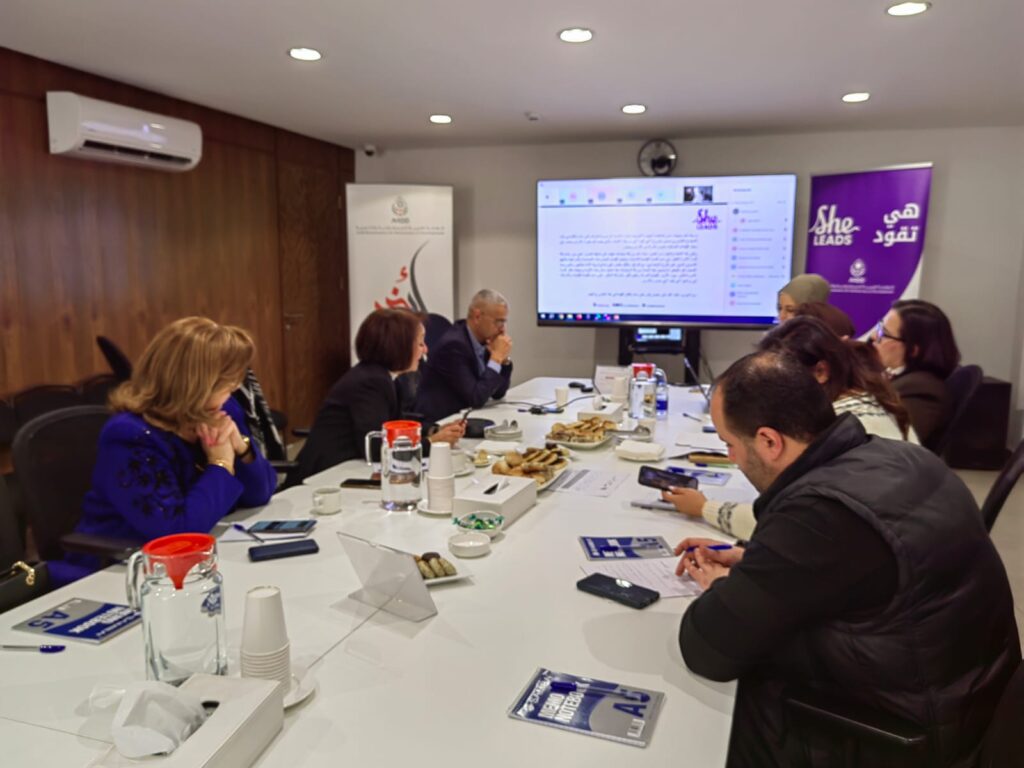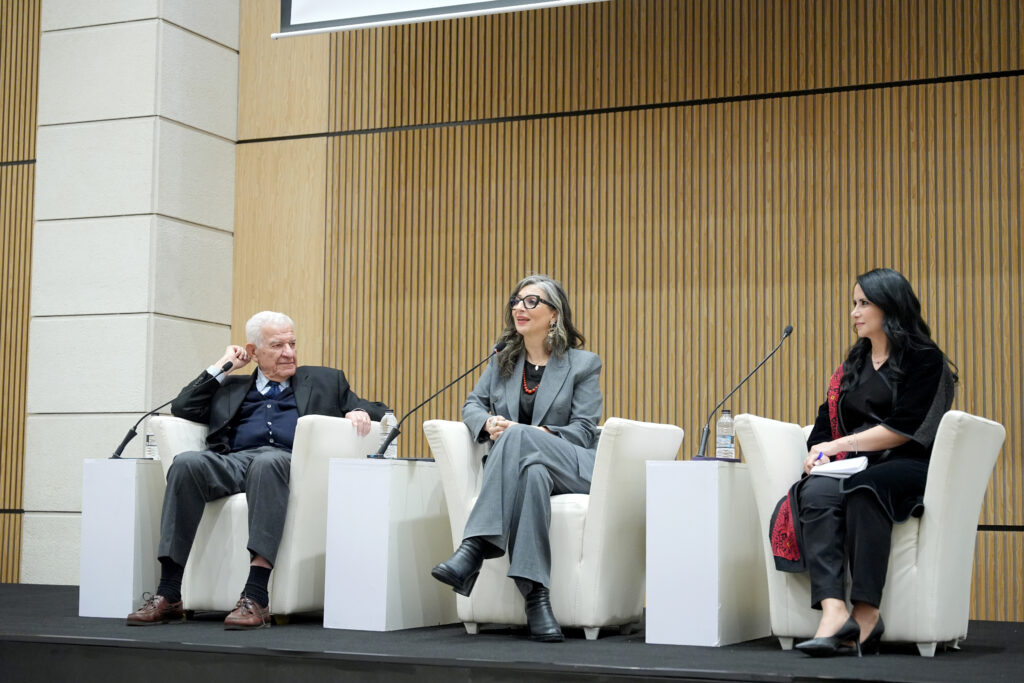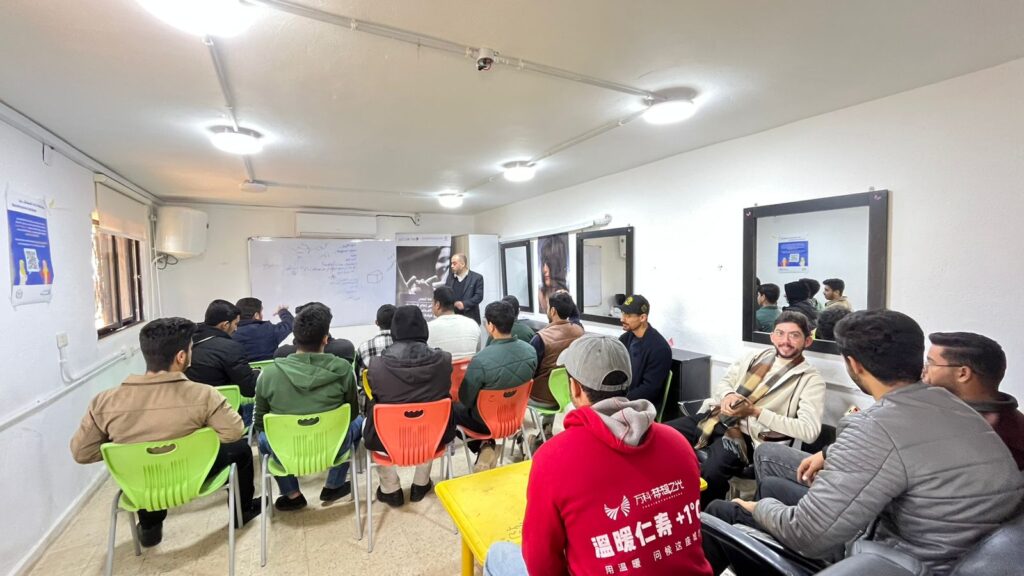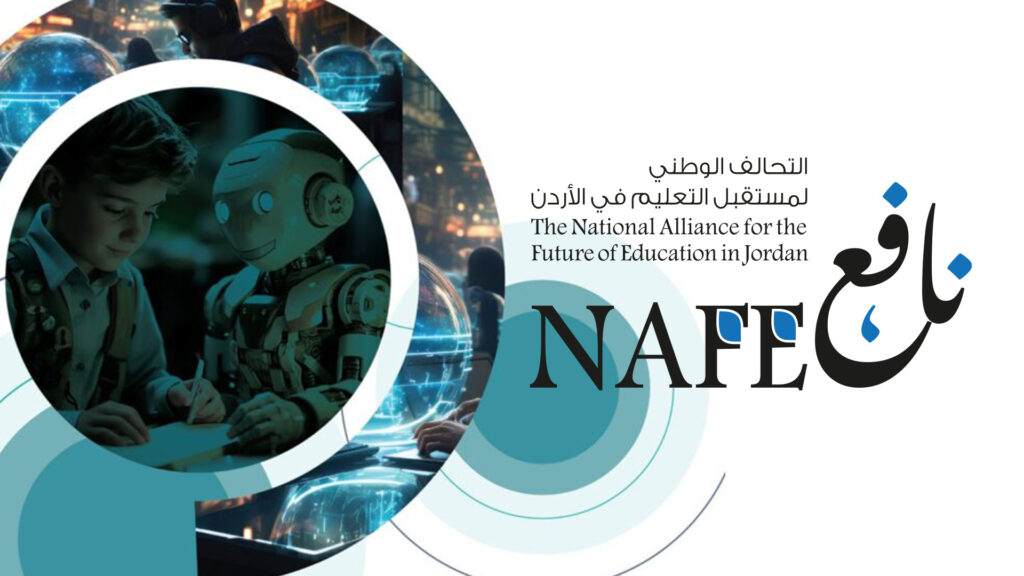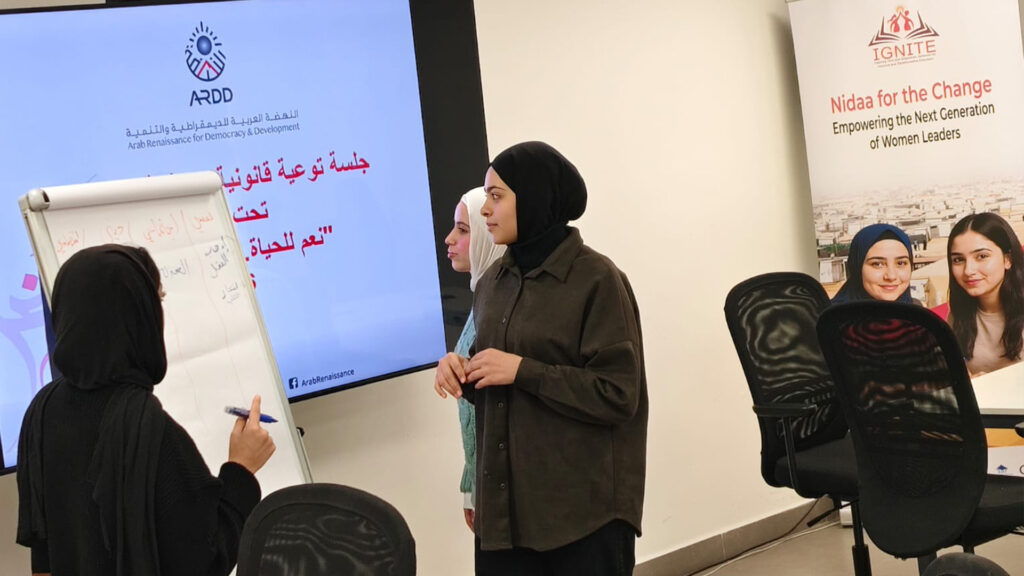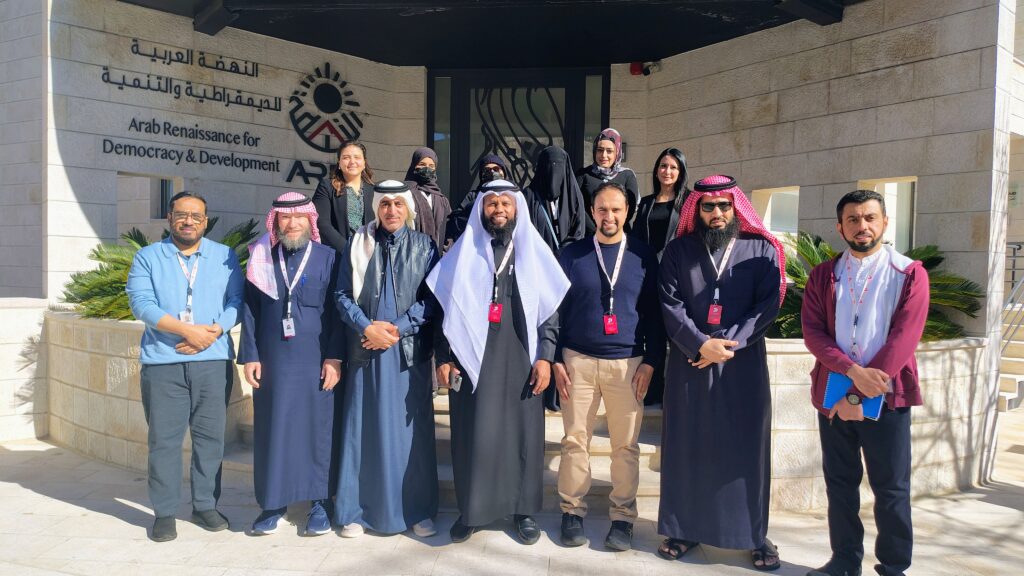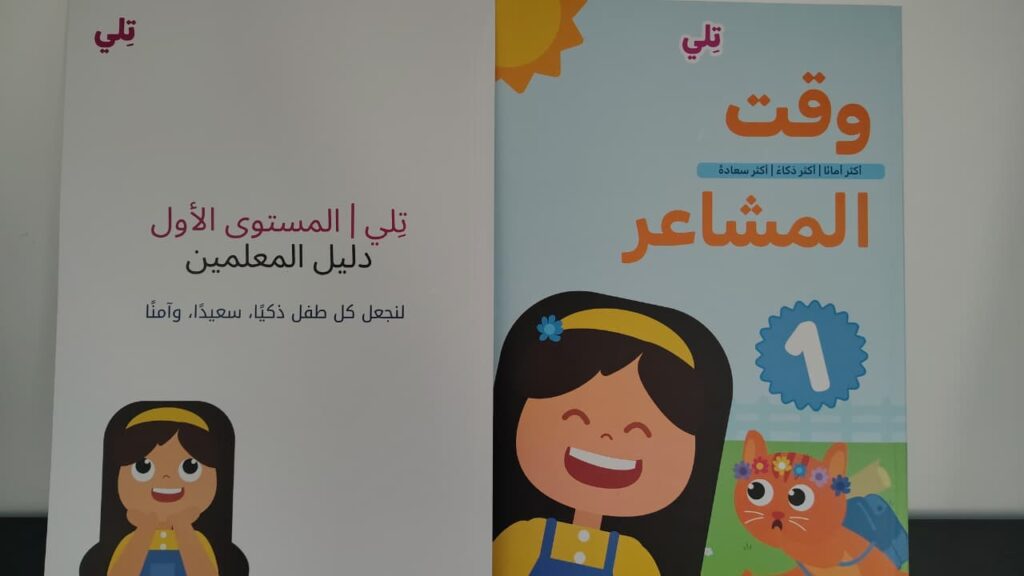As part of the second phase of the “She Leads” program, the Arab Renaissance for Democracy and Development (ARDD) held a consultation meeting on Tuesday, April 15, 2025, bringing together experts in women’s leadership and gender affairs from Jordan and Egypt. The meeting aimed to contribute to Renaissance Strategic Center´s ongoing research exploring the role of male family members, particularly fathers, in fostering leadership skills among young women.
The meeting gathered representatives from research centers, universities, and regional and international civil society organizations. It formed part of efforts to develop a significant study and policy paper highlighting the importance of male family members’ involvement in supporting young women’s leadership development. It also aimed to identify best practices in this area and to assess how the male family members’ attitudes and actions affect young women’s leadership roles and impact the leadership journeys of girls and young women enrolled in the program.
Regarding the influence of male family members on girls’ professional and leadership decisions, participants stressed the need to develop a reference guide clarifying key research terms, such as “leadership,” “participation,” and “gender justice.” They also emphasized the importance of integrating economic, cultural, and social conditions into the research analysis, with attention to differences in emotional, material, and leadership support provided by families across the diverse social and cultural contexts of Jordan and Egypt.
Discussing the challenges and opportunities related to men’s involvement in supporting women’s leadership, participants noted that traditions, religion, and legal frameworks are primary determinants of behavior in any society, and that discrimination against women persists in certain areas. They highlighted the importance of incorporating men’s perspectives directly into the research to better understand their views, as well as the need to engage other societal actors such as schools, neighbors, workplaces, and friends. They also stressed the importance of considering geographic and social variations, along with the increasing role of social media in raising awareness among young women and their families.
In conclusion, participants recommended promoting positive male role models and providing safe spaces for dialogue between men and women. They also emphasized the need to develop practical tools to support men in adopting a conscious, supportive role in creating an enabling environment for young women. Moreover, they called for in-depth research that balances academic rigor with practical approaches, grounded in the local context and attentive to cultural and social transformations.
The She Leads program aims to promote gender-equal representation in decision-making processes through capacity-building activities that enhance girls’ and women’s access to education and skill development. It also encourages political engagement, advocacy, meaningful interaction, and awareness-raising through a collaborative and inclusive approach at both regional and international levels.

